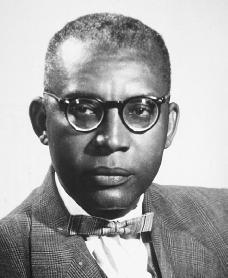Tell people you are planning on Haiti. Tell them, and wait for the raised eyebrows, the skewed glances, the incredulous questions. Anyone who says that Haiti tourism is a thriving industry is a liar. It's not much of a secret – pick up your nearest Caribbean travel guide. See if it lists Haiti. Sure, it"ll have Haiti's neighbor to the east, the ever growing Dominican Republic, but Haiti? Probably not. They would have you believe that no one wants to visit the island. Haiti has a reputation, after all.
A reputation for danger and instability. And while the turbulent history of Haiti doesn't lend itself well to apologists, the country itself has long been given a bad rap. While crime, environmental problems and urban decay definitely have a home here, it's neither more or less sketchy than many places in the world. And if anyone tries to talk you out of visiting Haiti, politely ignore them, as Haiti culture makes the island one of the most complex and fascinating locations in all of the Caribbean.
In fact, Haiti tourism was a bustling industry just 25 years ago. The untamed scenery and exotic locale were legendary, attracting movie stars and business moguls from all over the world. Notoriety came in the form of Haiti's national religion of voodoo, but it was soon replaced by a different, more ominous marking – dictatorships, drug trafficking, widespread poverty and violence, all of which seriously wounded Haiti tourism. And despite the return of democracy to the island in the 21st century, the island is still in the process of recovery.
But that is neither here nor there, as the island still has enormous beauty to offer. Factor in that the government and people of Haiti are trying their best to restore the island into a tourist haven, and you have all the makings for a sublime trip to an island rediscovering itself. The palm trees and gingerbread houses of Jacmel make the city one of the most beautiful locations in all of the Caribbean. The fading white of the buildings and voodoo artwork give the city an exoticism that reminds one of why this used to be one of the top tourist spots in the entire Caribbean.
The vibrant Haiti culture is most alive in its religion, music and food. Though the official religion of the country is Catholicism, a throwback to when the French ran the island, it is their continuing practice of voodoo that gives the culture of Haiti its exotic appeal. Though the French tried in vain to keep control of the island, Haiti became the second nation in the Americas (after the United States) to achieve independence. The most prominent remainder from French culture is the food, which borrows equally from creole, traditional African dishes and the spices of Latin America. The music of Haiti is significantly different from the rest of the Caribbean – kampa and zouk are the most popular forms here, and have more in common with jazz than the island beats found in places such as Cuba and Trinidad.
Despite the messy history of Haiti, the country is indeed becoming more tourist-friendly. Fear mongering and trumped-up State Department warnings are the only reminders of what Haiti used to be. Luckily, the people of Haiti are more concerned with what the island is turning into: one of the best kept secrets and one of the great examples of political and economic renewal in all of the world.
WWW.destination360.com



















